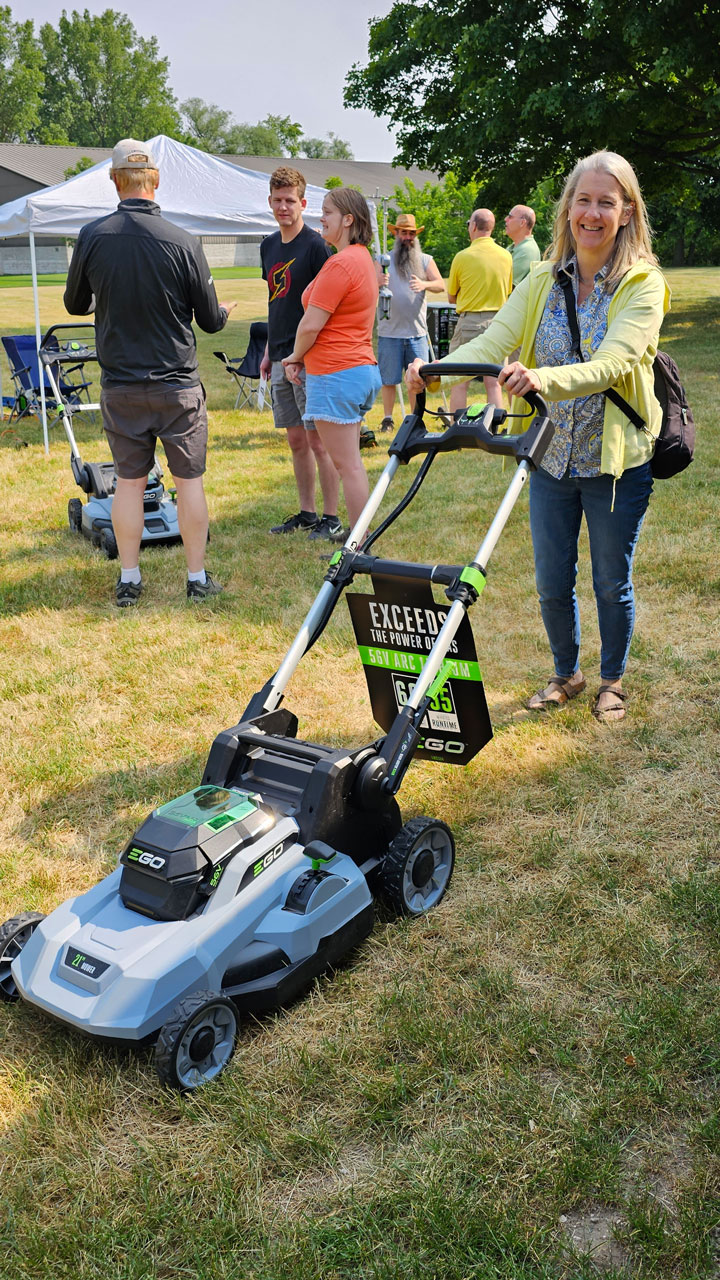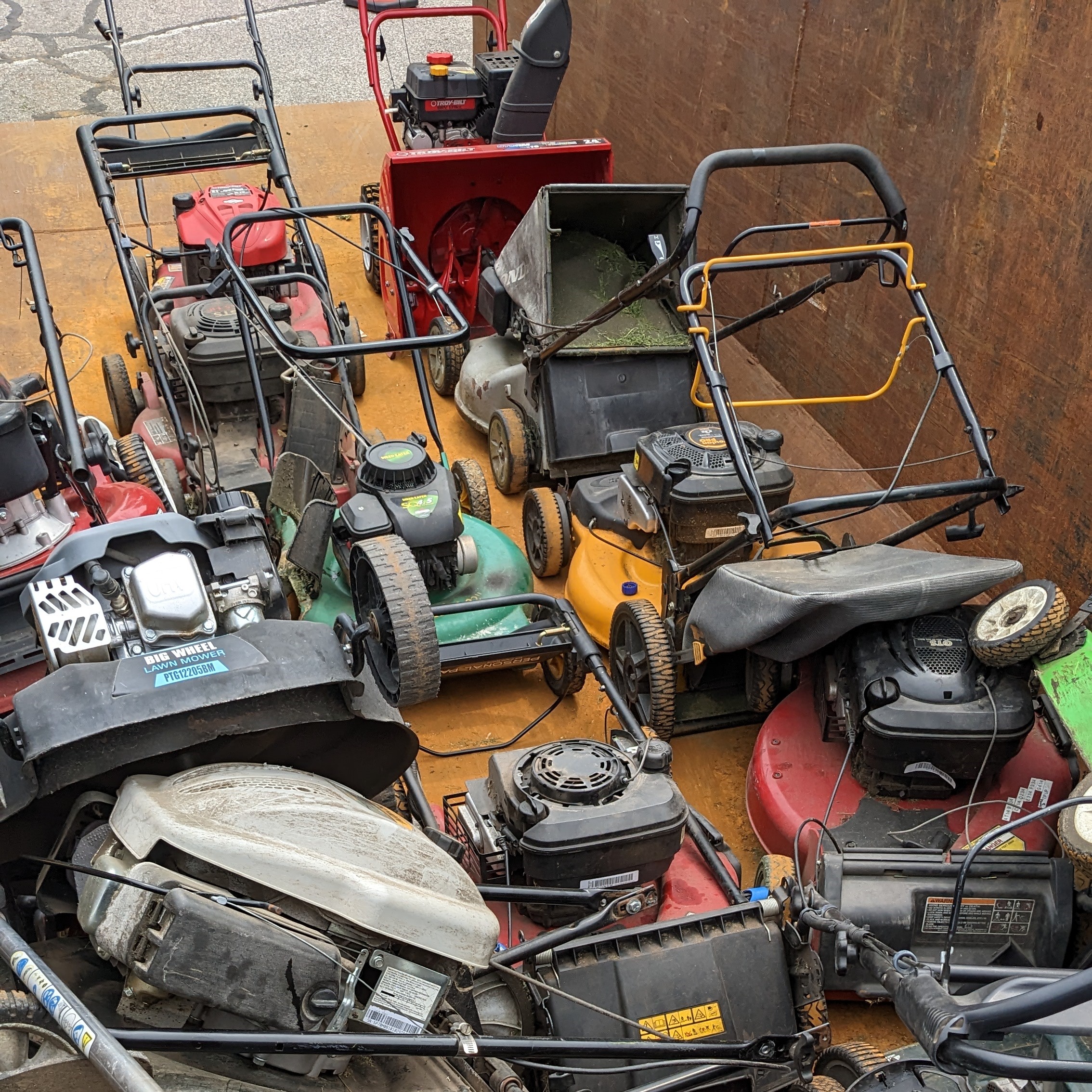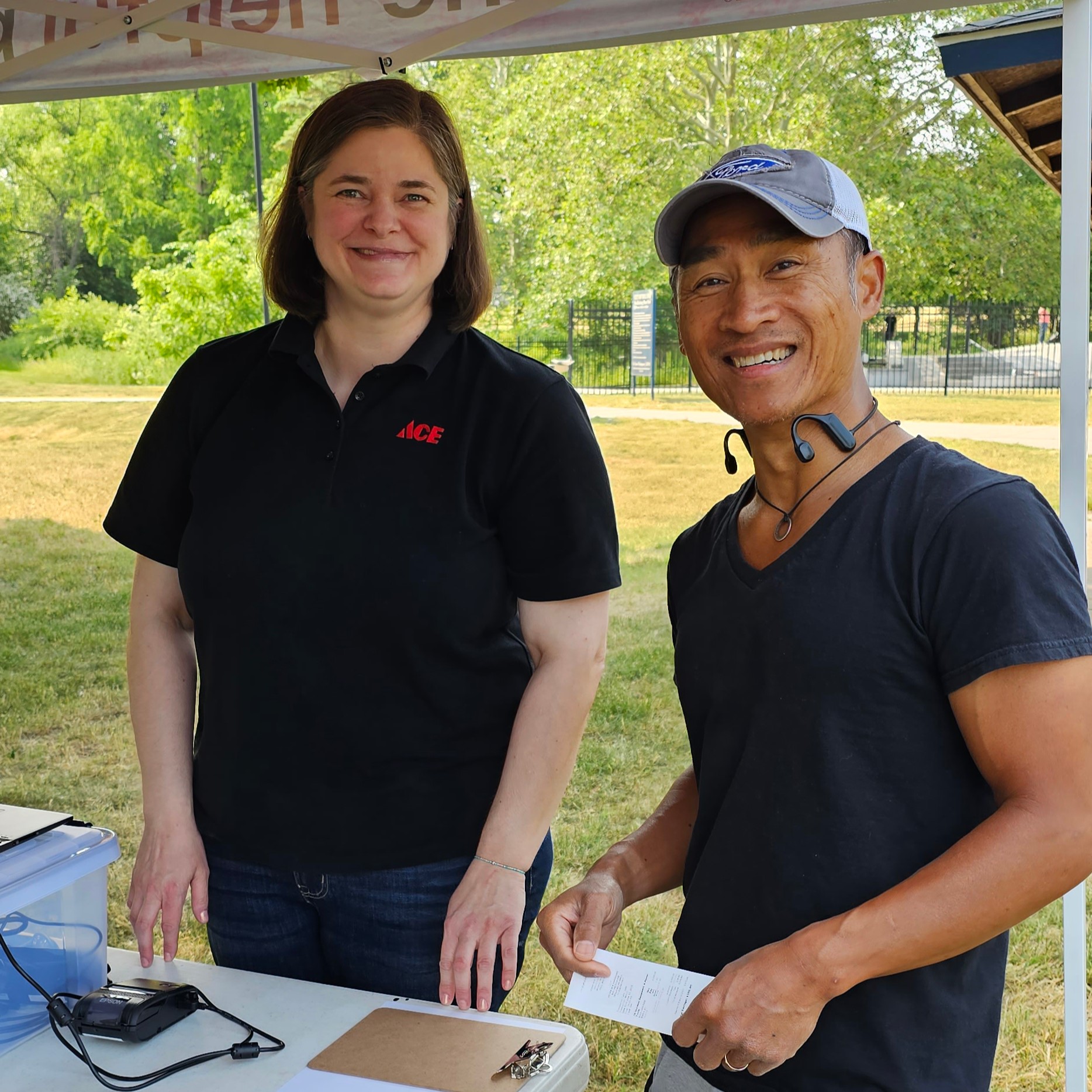Who Doesn’t Love a
Field Day?
Promoting Electric Lawn Tool Rebates
The City of Holland has a Community Energy Plan (CEP) that provides a framework for reducing carbon emissions through city-wide sustainability efforts. Beyond shifting our energy portfolio as an electric utility to renewable sources without sacrificing reliability, one key strategy in the CEP is to reduce carbon emissions coming from homes, businesses, and other buildings.
Our Energy Waste Reduction programs support the goals of the CEP through measures such as rebates for energy efficient appliances and tools. We are proud to report that in 2022 we exceeded our Energy Waste Reduction goal of saving 1.5% of total electric sales through waste reduction measures with an actual percentage saved of 1.8%!
In the fall of 2022, the Energy Waste Reduction program introduced a new initiative to support reducing carbon emissions from homes, launching a Beneficial Electrification program. The Beneficial Electrification program provides a series of rebates encouraging customers to use switch to efficient electric home heating systems, lawn tools, and appliances, promoting electric use over gasoline or natural gas-powered alternatives when doing reduces the city’s carbon emissions.


Electric Lawn Tool Rebates
Included in this program are rebates for electric lawn tools and additional rebates for recycling gas-powered tools. While many customers are drawn to the benefits of electrified lawn tools, some have not had the chance to see electric lawn tools in action.
The lower level of noise, absence of oil and gas, and sustainability are all selling points in favor of electric, but for those who are used to gas-powered, heavier tools, some customers have voiced hesitation around electric tool performance.
Try Before You Buy
In order to educate the public around electric lawn tools, Holland BPW’s Community Energy Services team created a new event last summer, the Electric Lawn Tool Field Day.
“We wanted to give our customers the chance to see what these tools are really like for themselves and show them that electric tools have all of the power and capabilities of their gas counterparts,” said Community Energy Manager Andrew Reynolds. “An electric mower can be a large investment for a family–it’s unique to have the opportunity to try one out for free before you purchase.”
A Successful New Event
This new event provided community members the chance to test electric lawn mowers, string trimmers and leaf blowers for themselves. Partnering with a local hardware store, the team utilized Visser Ace Hardware’s EGO tools as well as Greenworks tools for demonstration at a local Holland park.
After testing, customers had the opportunity to purchase tools at the event. Customers who purchased electric tools received their rebate immediately as a credit on their purchase. Additionally, Holland BPW provided a recycling collection point for gas-powered tools at the event, allowing customers to increase their overall rebate.
Over the course of the four-hour event, Holland BPW staff processed 15 new battery tool rebates and an additional 25 gas-powered tool recycling rebates, with many more customers trying out tools in the hope of purchasing at a later date.

A Year of New Incentives
In the first year of this program, there were 347 rebates awarded for new lawn tools with 115 tools recycled for additional savings. For the recycled tools and the new electric tools purchased during the event, we estimate a total carbon reduction of over 11,000 lbs.
Incentives like the Beneficial Electrification program not only reduce harmful emissions in our environment, they improve the lives of our community members through reduced noise pollution, smells, and on-site emissions from gas-powered tools, all while providing a high-performance tool that is easier to start and maintain.
Stay tuned for future events and rebates as we continue to work with our community to reduce carbon emissions.
For more information on rebates and programs, visit hollandbpw.com/rebates or call 616.355.1534.
Next Article: Protecting Our Water Resources 〉
